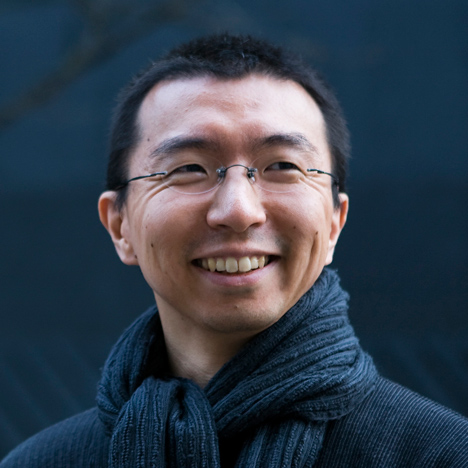
Unpaid architecture internships in Japan are a "nice opportunity" says Sou Fujimoto
News: Sou Fujimoto, the architect of this year's Serpentine Pavilion, has defended the Japanese practice of hiring unpaid "open desk" interns, describing the system as a "nice opportunity" for both the employer and intern.
Speaking to Dezeen at the press preview of the pavilion yesterday, the head of Sou Fujimoto Architects said: "In Japan we have a long history of interns and usually the students work for free for several periods. It’s a nice opportunity for both of us: [for the employer] to know younger generations and for them to know how architects in Japan or different countries are working."
He added: "For my office there are many, many interns – especially from abroad."
Unpaid internships in UK architecture and design offices have been causing controversy lately, with RIBA president Angela Brady calling for whistle-blowers to report member practices that break the institute’s rules by taking on unpaid workers. Practices found guilty will have their chartered practice status removed.
"All staff must be paid if they are working for a RIBA chartered practice," Brady told Dezeen. "If they do not do this, the practice will be struck off the chartered practice list." Brady said this had happened in a handful of cases, but could not give figures.
She added: "I think it is exploitation to take staff who are doing productive work in your office and not pay them a fair wage".
The RIBA changed its rules in 2011 to compel chartered practices to pay at least the minimum wage to all student placements. Later that year the British Institute of Interior Design followed suit and recommended that all interior design interns be paid at least the statutory minimum wage.
Dezeen stopped hiring unpaid editorial interns earlier this year following criticism of the practice.
In Japan however, there is a widespread tradition of "open desk" working, where students and graduates typically spend between three and six months working without pay to gain experience. Architecture firms regularly use "open desk" workers to build models and prepare drawings.
"They get scholarships by themselves and they come to my office and spend from three months to six months sometimes," said Fujimoto, who is based in Tokyo. "The interns are making beautiful models and sometimes if it is a long period, for example six months, they can join more deeply in the project. They are really helpful and they are really powerful."
He added that the debate about the ethics of taking on unpaid workers had yet to surface in Japan. "In Japan we don’t yet have much discussion as to whether it is good or bad. I understand that there is such a discussion surrounding working for free and whether it is good or bad, so I’d like to see how the whole discussion is going along."
Internships with high-profile Japanese architects are popular with international students and graduates, who are not offered any financial help with travel or accommodation and are expected to make their own visa arrangements. They are expected to work the same long hours as paid staff, with the working day lasting from 10am to midnight in some offices.
Fujimoto added: "If you have to pay all the interns, then we’d definitely have to limit the number of the interns and we couldn’t provide such an opportunity for students or younger people to gain experience in [...] architecture."
See architecture and design by Sou Fujimoto »